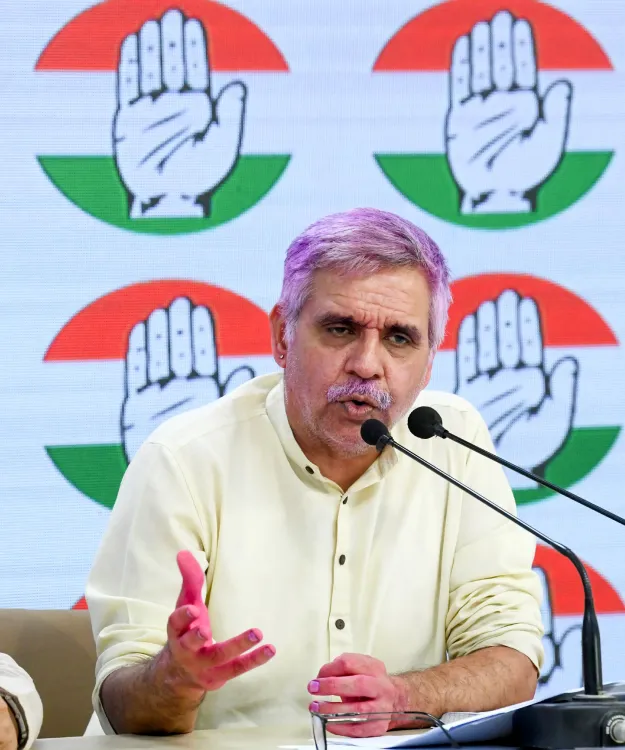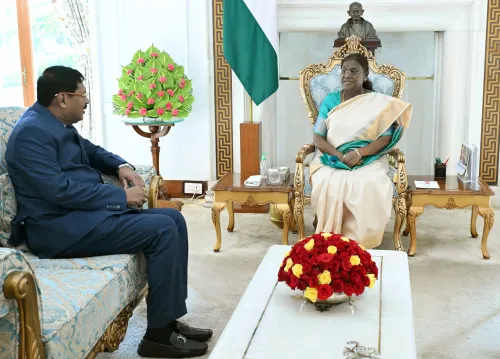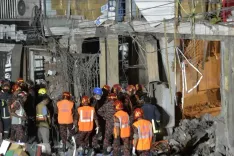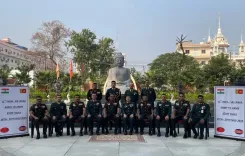Is the Supreme Court's Hearing on SIR Postponement a Legal and Political Challenge for All Parties in Kerala?

Synopsis
Key Takeaways
- The Supreme Court is set to hear a plea for postponing the SIR in Kerala.
- Opposition leaders argue this situation requires collective political engagement.
- Manpower constraints are central to the Kerala government's postponement request.
- Concerns about electoral roll integrity are prevalent among political factions.
- The outcome could significantly impact the upcoming local elections.
New Delhi, Nov 21 (NationPress) As the Supreme Court gears up to deliberate on a plea for the postponement of the Special Intensive Revision (SIR) of electoral rolls in Kerala, in light of the impending Local Self-Government Institutions (LSGI) elections, leaders from the Opposition assert that this issue embodies both a legal and political struggle that requires collective participation from all political factions.
In an interview with IANS regarding the Kerala government’s petition linked to the SIR, Congress leader Sandeep Dikshit remarked, “While the government intends to submit a petition, I can’t predict the Supreme Court’s response. This is both a legal and political battle that necessitates involvement from all sides. The challenge lies in the Election Commission’s apparent rigidity, leading to a process undermined by public trust.”
He also commented, “The general public has lost faith in this process. It is often stated that the SIR didn’t influence the Bihar elections. However, the voters excluded were predominantly from the Opposition. I find this claim ludicrous. In my area, a majority supports the Congress. If you eliminate those voters, which party would emerge victorious? The assertion that the SIR had no impact is unfounded, especially when people’s voting rights are being compromised.”
RJD spokesperson Mrityunjay Tiwari added, “We are anticipating the hearing on the petition challenging the SIR today, eager to see how the proceedings unfold and what ruling is made.”
A Bench led by Chief Justice of India (CJI) B.R. Gavai had agreed to schedule the plea after the counsel informed the court that the SIR process is currently in progress, even as Kerala is set to conduct local body elections in the second week of December.
The Kerala government has approached the Supreme Court requesting a delay in the SIR process, following the Kerala High Court’s refusal last week to entertain its writ petition seeking to postpone the procedure.
Due to significant manpower shortages, the state government argues that conducting the SIR concurrently with the LSGI elections would cause an “administrative impasse”.
In its petition under Article 32, Kerala highlights that more than 1,76,000 government and quasi-government personnel, along with 68,000 security staff, are essential for the local body elections. The SIR, according to the petition, requires an additional 25,668 officials, many of whom are sourced from the same limited pool of trained election personnel.
“There exists a constitutional obligation to complete the LSGI elections by December 21, 2025. Conducting the SIR simultaneously would strain the administration and hinder the smooth execution of the elections,” the plea stated, referencing statutory deadlines under the Kerala Panchayat Raj Act, 1994, and the Kerala Municipality Act, 1994.
The petition contended that while the local body elections must be completed by December 21, there is no urgent necessity to finalize the SIR at this moment, particularly since Assembly elections are not due until May 2026.
“Undermining the verification quality by hastily pushing it through, while constitutional elections are ongoing, contradicts the democratic right to vote,” the petition asserted.
Before the Kerala High Court, the Election Commission of India argued that the SIR is part of a nationwide initiative, with over half of the process already finalized, adding that halting it midway would disrupt preparations for the subsequent electoral cycle.
A single-judge Bench of Justice V.G. Arun noted that similar petitions challenging the SIR of voters’ lists in Bihar, Tamil Nadu, and West Bengal are already pending before the Supreme Court, suggesting that “judicial discipline and comity” required the Kerala High Court to abstain from adjudicating this matter.









